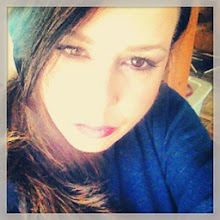 (An excerpt from unpublished manuscript, "Homesick")
(An excerpt from unpublished manuscript, "Homesick")I’m in the living room, sitting in a chair I never use, trying to collect the last of the day’s light. There’s been a blackout. My neighbor tells me in the courtyard it could be hours before we see light, and on record, it’s the hottest day of the year, so until now, the neighborhood has been working to stay cool in the suffocation of the day of one hundred and eleven degrees. I think about how I must find new ways to keep my mind busy—all without thinking about my marriage to electricity.
The sun has begun to set and I don’t own a flashlight. Even though I was raised to always have one in case of emergencies, I never remember to buy batteries.
There’s something about the whole flashlight thing that silently disturbs me: an eye of light, a limit in perception, and the vulnerability of moving amongst the dark.
We’ve been out of power for only a half an hour and my dog, Max, is panting; there’s a heat wave hysteria building up in the house. He circles the living room with doubt and suspicion. It’s still too hot to open the doors, even at eight thirty in the evening. I open more blinds to bring in the last of the summer light. It’s the most my neighbors have seen of me inside my house, since I keep my blinds tightly closed to reduce the heat of living in central California. I’ve learned the less Max sees on the outside, the less likely he will bark while I’m at work. From the standpoint of the living room, he’s been reduced only to sound. The sound of the rod iron gate squeaking, the mailman who slams the rows of mailboxes back into the stucco wall, the City of Fresno emptying the recycling or garbage bins, the beeping of a delivery truck as it inches its way out of the six-unit complex where I live. I light the candles on the mantle. It’s been months since I’ve taken the time to do this. When I lived in San Francisco I didn’t feel “home” until I lit a candle in the window. I always said a prayer or a wish and imagined the wishes traveling over the city. Maybe it was the act of intention. Hope recognized.
Beautiful amber rays flicker from the candles back on the mantle. Illuminations of a dance scatter themselves down the tiny hallway of the apartment. Each movement has intent, and relies on the darkness for its beauty. I wonder if this is how hope works.
I return to the chair by the window. Darkness sinks into the center of the room, a purple-black haze through the room. My eyes are beginning to adjust to the dark. I’m forced to be left alone with silence until I am seduced by song. I am guessing it’s a sparrow on the other side of the glass. I don’t know the names of birds who sing or the ones who don’t. Since childhood when my fascination with birds began, I have never stopped to ask if there are bird species that didn’t sing. My neighbor tells me, when we simultaneously step outside into the shared courtyard to get fresh air, that it was most likely a mocking bird. “A mockingbird…of course.” I say, stunned that a bird, with such a beautiful name, might have been on my rooftop, serenading into the stillness of the early evening. This bird has captured my heart. I admire his patience and his melody as he continues to sing to find love and once again, I feel sick with hope.












